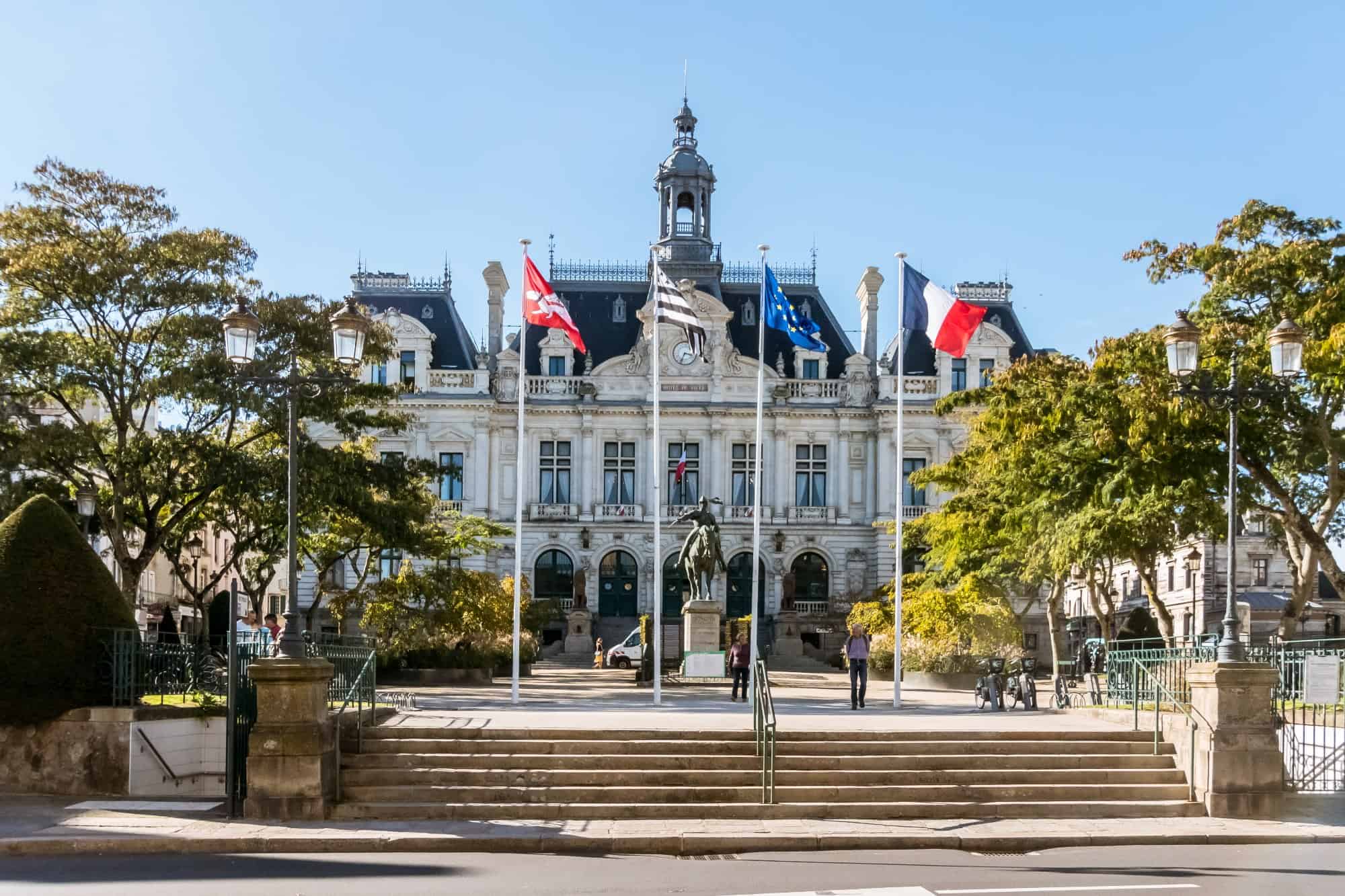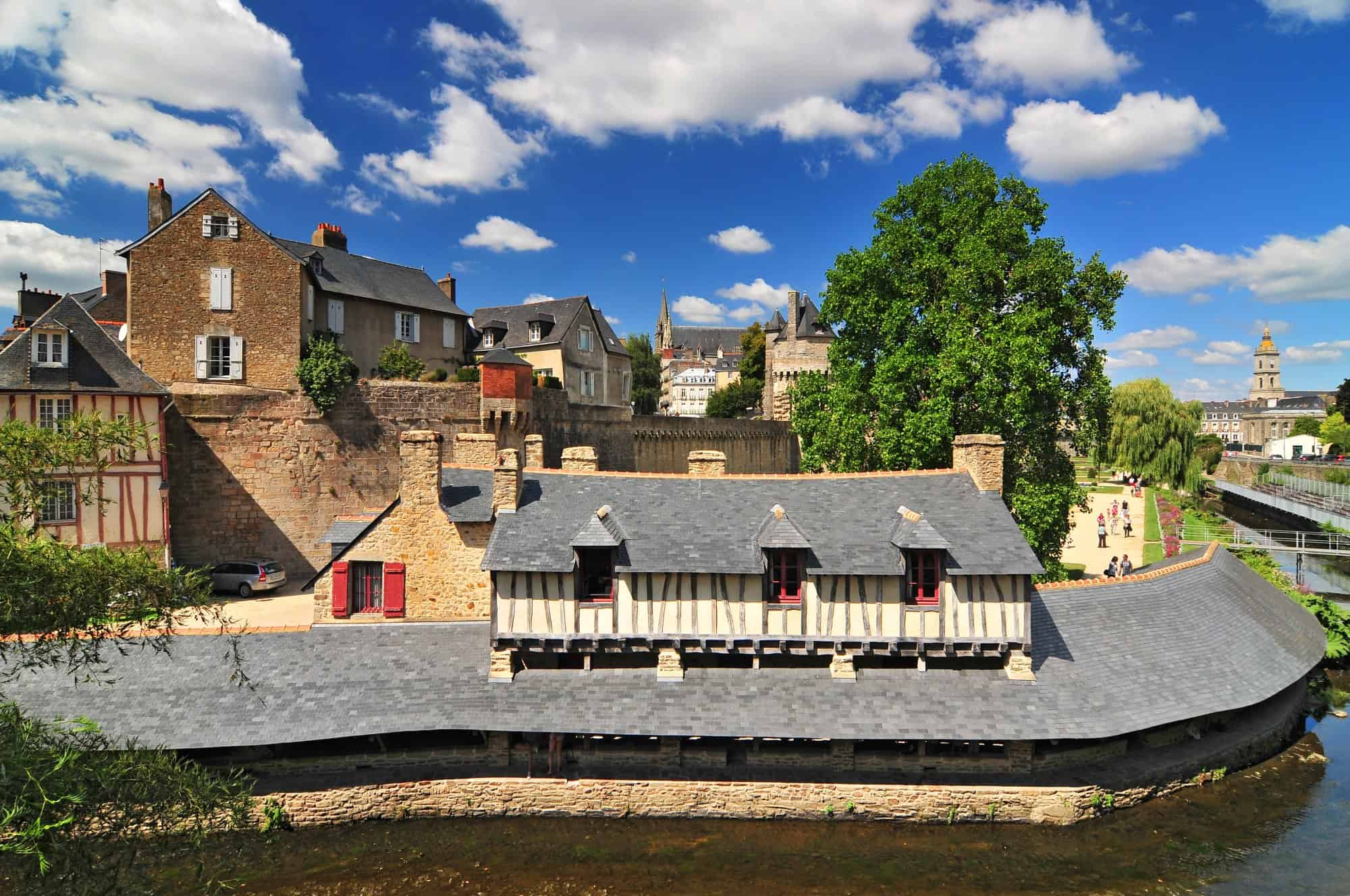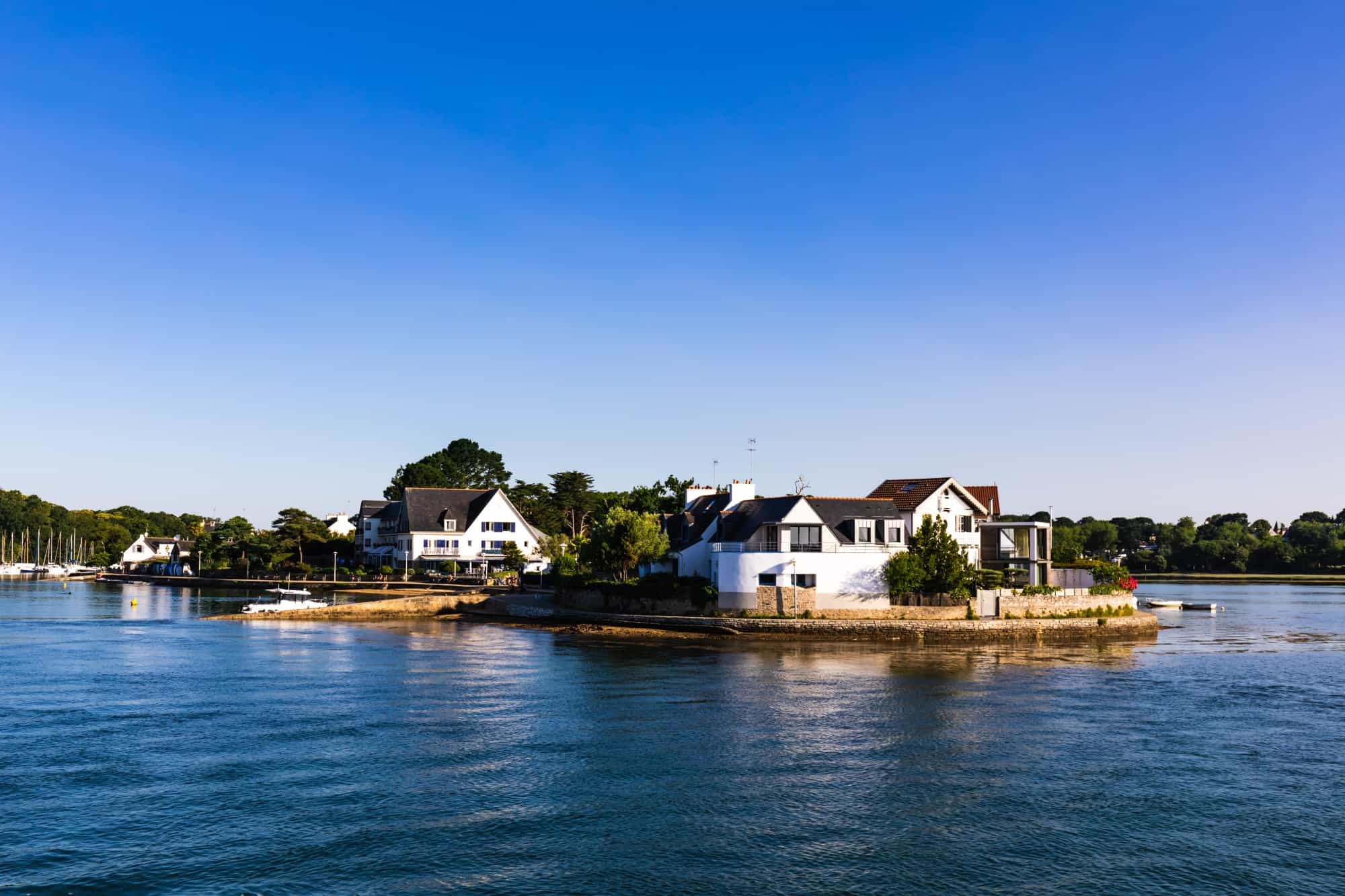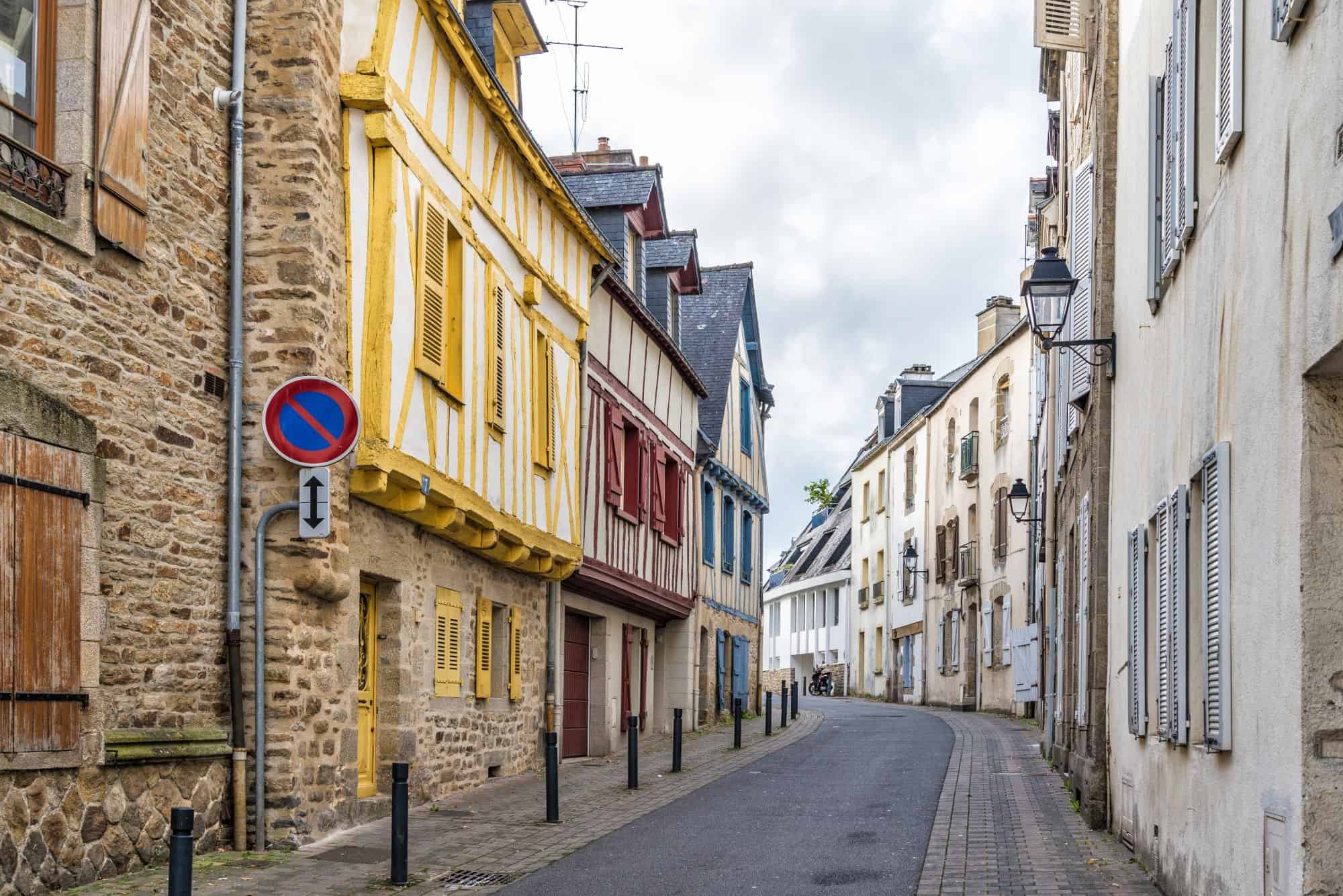Often referred to as the pearl of Brittany or the pearl of the Gulf, Vannes is one of Brittany’s most overlooked towns. Hiding in southern Brittany, it doesn’t get the same attention as the towns on the north coast, but this medieval walled town is all the more charming for flying under the radar.
Interested to know what living in Vannes is like? Let's talk about it.
Secure Peace of Mind with Best-Value International Health Coverage
International Citizens Insurance provide free, no-obligation quotes from the leading international health insurance providers with plans tailored to meet your needs. Trusted by thousands of expats worldwide.
Vannes overview
Okay, so Vannes doesn’t exactly fly under the radar. It’s still very popular with tourists and expats, and has a hectic summer season.

But in comparison to other Brittany destinations (Rennes, Saint-Malo, Brest, Etc), it is slightly quieter and offers a traditional Brittany welcome.
As expected, life in Vannes revolves around the sea and being outside. From the stunning beaches to the port, inland river, and seafood, the sea dominates life in Vannes.
If you’re looking to move somewhere you can reconnect with nature, Vannes is for you.
Water sports and hiking are popular activities, usually closely followed by fresh seafood and a trip to the pub for some local cider.
Like most of Brittany, people living in Vannes spend a healthy amount of time outdoors and enjoy a hearty amount of local cuisine.
Vannes is less glamorous than other large towns in the north of France, so if you’re looking for a luxurious, high-fashion hub of activity, you might want to look somewhere like the French Riviera or even consider living in Paris, for that matter.
As a university town, Vannes is full of young people for most of the year, which keeps it busy and exciting during the off-season.
The pros and cons of living in Vannes
Looking for a simple breakdown of life in Vannes? Of course, we could spend hours discussing the ins and outs of every aspect of Vannes; as a large town in France, it offers a lot.

However, these are the primary reasons people love Vannes and a few reasons some people choose to live elsewhere.
The pros of living in Vannes
1. The food
The crepes, cider, and seafood are remarkable. Brittany, in general, has fantastic local, fresh food, and Vannes is no exception.
2. Steeped in history
Vannes is packed full of history. There will always be something to explore, from the walled town center to the lodgings of famous writers staying in town in recent years.
3. Amazing nature
Stepping outside of the town, you’ll find stunning fields and hills of the Brittany coastline immediately surrounding you. Walking and biking trails are literally everywhere. The scenery is so beautiful it’s worth moving to Vannes just for the views.
4. All the modern amenities you need
Vannes is a modern French town, and as such, you’ll never run out of places to eat, visit, and things to do. Vannes is very connected, and life here isn’t hard.
The cons of living in Vannes
1. Rent and property prices
House prices can be slightly higher here than in the rest of the region.

2. It can get loud
As a university town, Vannes has plenty of students and student nightlife. This could be a pro for many people, but some wish it were quieter in some areas.
3. Tourist destination
Vannes comes with a double-negative of tourists: packed in summer and many empty properties in winter. Some businesses open just in summer so that deep winter can feel a bit dead.
4. Not 'summer all year round'
Some people think moving to France automatically means sunny weather. Vannes is sufficiently far north and coastal that it gets its fair share of wind and rain.
Where to live in Vannes and around
Here are the most popular areas in the city and just outside of it that you might want to consider:
Centre-Ville (City Center) is a scenic area filled with medieval architecture and cobblestone streets. Its central location offers easy access to shops, restaurants, cafes, and all the action. Its proximity to the harbor and main transport links makes it very convenient. The lively atmosphere, local markets, and frequent festivals - lots of things to do, and you will never get bored.
Le Port (The Port) offers great views of the marina and provides easy access to scenic coastal walks. This area is known for its lively selection of waterfront restaurants and cafes. Le Port has an active social scene and is particularly appealing to sailing enthusiasts.
Saint-Patern is a quieter, more village-like area with narrow streets and half-timbered houses. It is quieter here but still close to the city center. A great place if you want a peaceful living experience and quick access to the amenities and activities in Vannes.
Conleau is a small peninsula renowned for its stunning views of the Gulf of Morbihan and its coastal lifestyle. You will get to enjoy the natural beauty, small beach, and serene environment. The relaxed, peaceful vibe is complemented by excellent opportunities for outdoor activities like walking and cycling. It’s a true retreat for nature lovers.
Séné is a suburban area just outside Vannes, offering a chance to be close to nature but within easy access to the conveniences of the city. With its excellent walking paths, bird-watching opportunities, and tranquil lifestyle, Séné is particularly appealing to families and retirees.
Kercado is an affordable residential area that is well-connected to the city center by public transport. If you value access to parks and green spaces, as well as a quieter suburban lifestyle, Kercado is an ideal place to live.
Toulbroch provides a suburban environment with a mix of modern and traditional homes. Known for its quiet, family-friendly atmosphere, it’s a popular choice if you are seeking a peaceful, less touristy area to live in.
Cliscouët is another popular residential neighborhood known for offering affordable housing and a relaxed suburban atmosphere. It has quiet streets and a community-oriented feel, with the added bonus of being just a short distance from the city center.
Plescop is a growing suburb just outside Vannes, featuring modern housing developments and a peaceful setting. Plescop’s good transport links to Vannes mean that residents can easily commute to the city while enjoying a more rural, green environment.
Ménimur is one of the more affordable areas in Vannes with a large residential neighborhood with various local amenities, including shops and schools. The area is diverse and multicultural. With parks and recreational areas nearby, Ménimur is particularly well-suited for families and those who enjoy an active, outdoor lifestyle.
The cost of living in Vannes
Vannes generally has fewer full-time expats than the rest of Brittany, and part of the reason for this is that house prices are slightly higher.

Although you don’t need to be a millionaire to live in and around Vannes, you can definitely find cheaper places in Brittany.
In downtown Vannes, you can find an apartment with two bedrooms to rent for around €1200.
If you’re looking to buy, you’ll be looking at approximately €250,000.
You can find cheaper, and there are certainly plenty of university-student flats, but these generally come with quality compromises.
In the north of the town, you’ll find more affordable properties, but chances are your neighbors will be students.
Here’s how much it costs to rent and buy a 2-bed property in various areas and suburbs of Vannes:
| Area/Suburb | Rent (€) | Price (€) |
|---|---|---|
| Centre-Ville | 800 - 1,100 | 320,000 - 450,000 |
| Le Port | 900 - 1,200 | 350,000 - 500,000 |
| Saint-Patern | 750 - 1,000 | 300,000 - 430,000 |
| Kercado | 600 - 850 | 250,000 - 380,000 |
| Toulbroch | 700 - 950 | 280,000 - 400,000 |
| Cliscouët | 650 - 900 | 270,000 - 390,000 |
| Ménimur | 600 - 800 | 240,000 - 350,000 |
| Conleau | 850 - 1,150 | 330,000 - 460,000 |
| Séné | 750 - 1,050 | 310,000 - 440,000 |
| Plescop | 650 - 900 | 260,000 - 380,000 |
- Renting A Property In France - the rental procedures and rules of renting in France you must know before signing a French rental contract.
If you’re looking for a house with outside space outside of the city center, it’ll set you back around €400,000 as a minimum. More expensive areas nearby on the coast are peppered with huge houses costing upwards of €2 million.
- A Complete Guide To Buying A Property In France - everything you need to understand how buying a property is done in France to ensure a safe house purchase.
However, once you’ve found somewhere to live, the cost of living in Vannes isn’t too high.
The warm and sometimes very wet climate means plenty of local produce is sold in weekly markets cheaply. You can get kilos of fresh fruit and veg for less than €1.
Although Vannes is sometimes overlooked, it’s still a significant town in France, and as such, necessities such as gym membership, internet, white goods, schooling, and healthcare are all reasonably affordable.
Although Vannes doesn’t have as much to offer as larger cities, you can still choose between different gyms, plenty of major brand stores, and a decent number of bars and restaurants.
If you do plan on enjoying an active social life eating out, you’ll find good local food, and a bottle of local cider will only cost you €20 per person.
A fancy three-course dinner to celebrate your new life in Vannes will only be €50-60. Cheers!
Things to know before you go
If Vannes sounds like your kind of place, then here are a few things to consider before you take the plunge.

Since Vannes has retained its old-fashioned French charm, it’s very popular with tourists. This means that you’ll hear more English than French during the summer months, and streets and restaurants will be flooded with tourists – mainly Brits.
If you’re concerned about the standard of your French, Vannes is the perfect place to go. The town is twinned with Fareham in Hampshire, so many locals speak English fluently. Of course, the locals will be more welcoming if you try to speak French.
Seafood and cider are a considerable amount of the local cuisine in the area, so if you’re not a massive fan of both, look elsewhere or bring your own food.
Although its location makes it slightly protected, Vannes is still coastal, and therefore, winter is windy. You’ll need a coat with a hood, not an umbrella.
Many people choose to walk or bike around Vannes instead of driving due to the windy, narrow streets; chances are you need to buy comfortable shoes for walking or a smaller car.
Vannes has plenty of tourist jobs, and seasonal work is easy to find. Of course, more and more people are working remotely nowadays, so if you plan on working, you won’t find it hard to get a job.
Tuesday and Saturday are market days in Place des Lices. It’s always bustling but a great place to shop, chat, and meet people. It’s an excellent way to get in touch with local culture.
Expats in Vannes
As we’ve said, Vannes is sometimes overlooked by expats who prefer the central hub of Rennes or the picturesque villages of Saint-Malo.
However, that doesn’t mean you won’t find an active expat community in the area. Vannes has plenty of second homes, many of which belong to Parisians who enjoy a weekend by the sea.
While most second homes belong to the French, you’ll find plenty of Brits with second homes in the area. You’ll also find a fair share of expats.
On Facebook, you’ll find dedicated groups of expats for everything from knitting groups, book clubs, and foodies to water sports, sailing, and gardeners. Groups here are very welcoming, and you’ll surely meet plenty of like-minded people.
You can also find expats gathering in local pubs, at open-air markets, and in cafes. Just walk around the town center on a Saturday morning in spring, and you’ll overhear plenty of conversations in English.
Generally, you’ll find the expatriates very willing to help out and point you in the direction of translators, English-speaking lawyers, and who to speak to about your healthcare card.
As a last resort, you could contact the mayor, who will undoubtedly know who’s who.
The final word on living in Vannes
Life in Brittany is always going to be good. Good food, good company, and stunning scenery mean you’d be hard-pressed to wake up on the wrong side of the bed.
Usually overlooked by expats, Vannes has a lot to offer, and there are thousands of reasons why it’s popular with tourists in the summer. Unlike some other areas, the university means that Vannes stays busy year-round, making it an excellent home for anyone who wants to get involved in local life and culture.
As a final word of warning, it’s best to think about how you plan to stay fit and active before you arrive. The local cuisine is exceptional, and you either need a good hobby or be prepared to buy a larger clothes size.
Other popular expat destinations in France to consider:
- What’s It Like Living In Brittany As An Expat
- What Is It Like Living In Burgundy
- Living In Provence
- Living On The French Riviera
- Living In The Dordogne
- Living in Saône-et-Loire, France
- Living In Normandy
- Living In Auvergne-Rhône-Alpes
You might find helpful:
- Living In France Guide – everything you need to know to plan your move and settle down in France
- The Best Places to Live in France – a detailed overview of France’s most popular locations for expats.
- Opening A Bank Account In France As An Expat
- Healthcare In France For Expats
- Understanding International Health Insurance: A Comprehensive Guide
- Didn’t find what you were looking for or need further advice? Comment with your question below and we will do our best to help.
Secure Peace of Mind with Best-Value International Health Coverage
International Citizens Insurance provide free, no-obligation quotes from the leading international health insurance providers with plans tailored to meet your needs. Trusted by thousands of expats worldwide.









